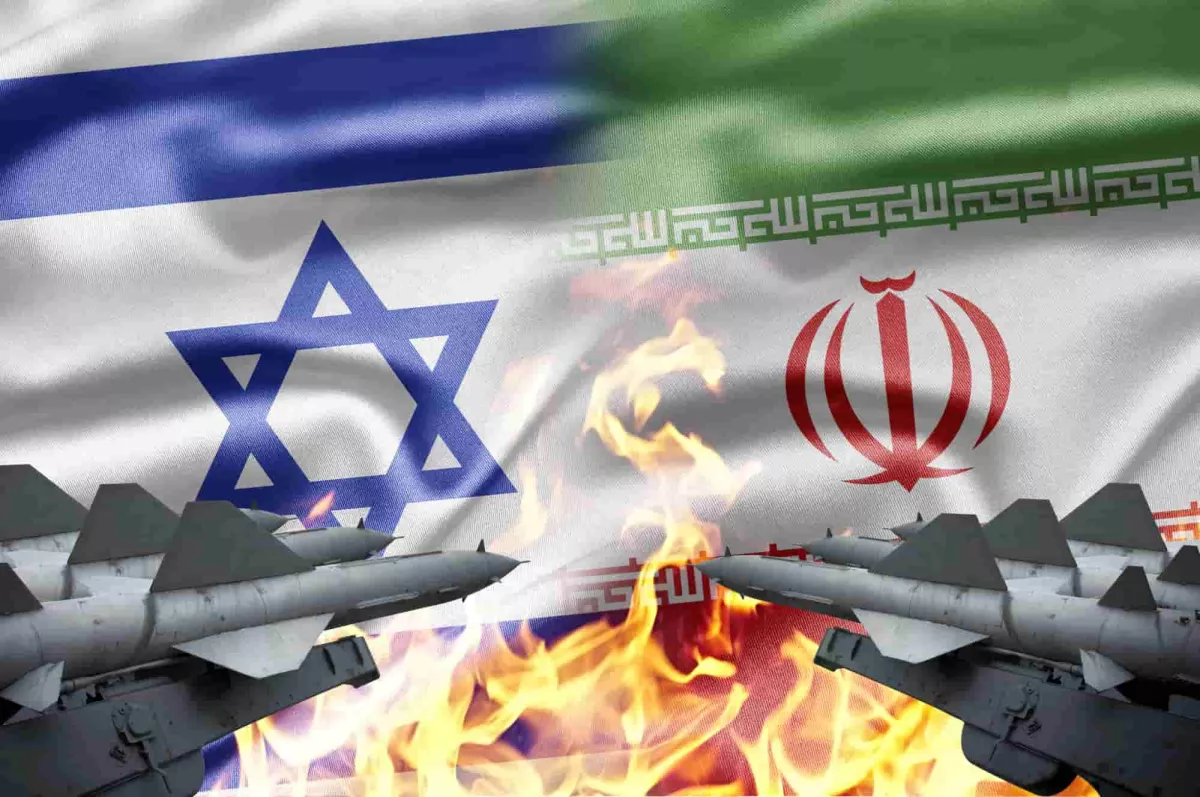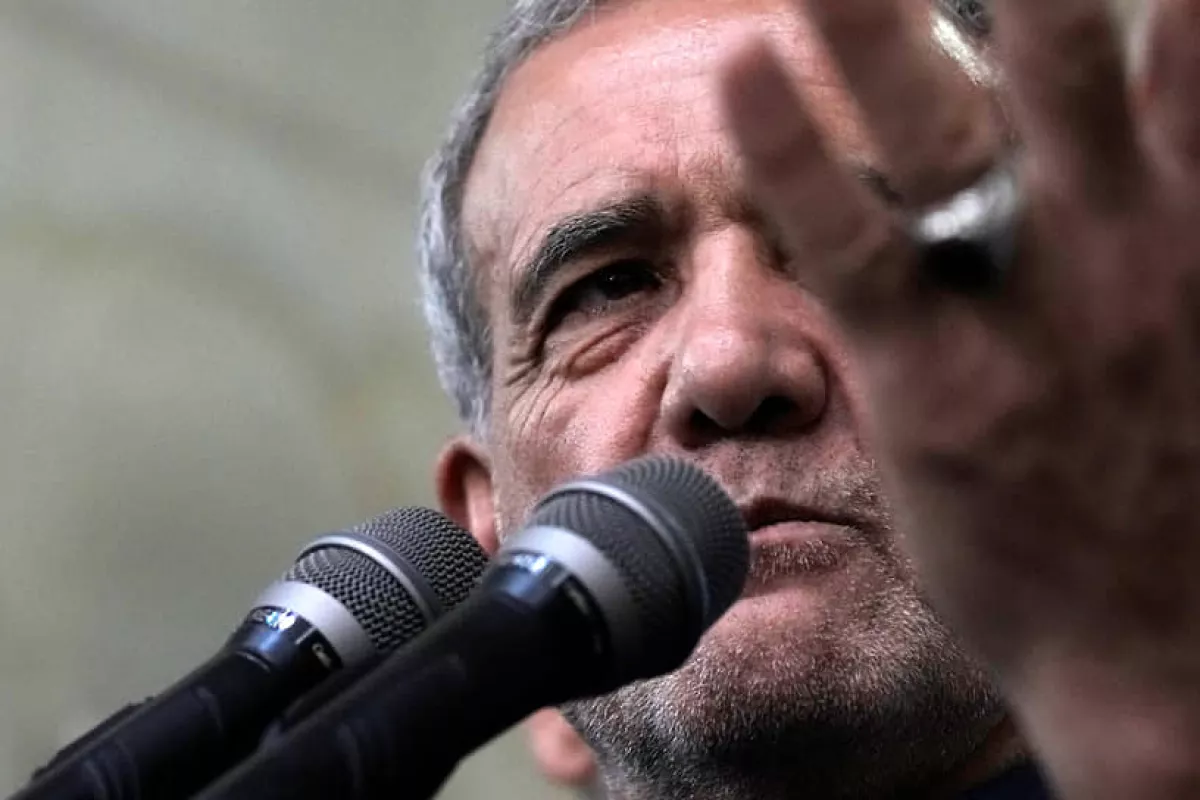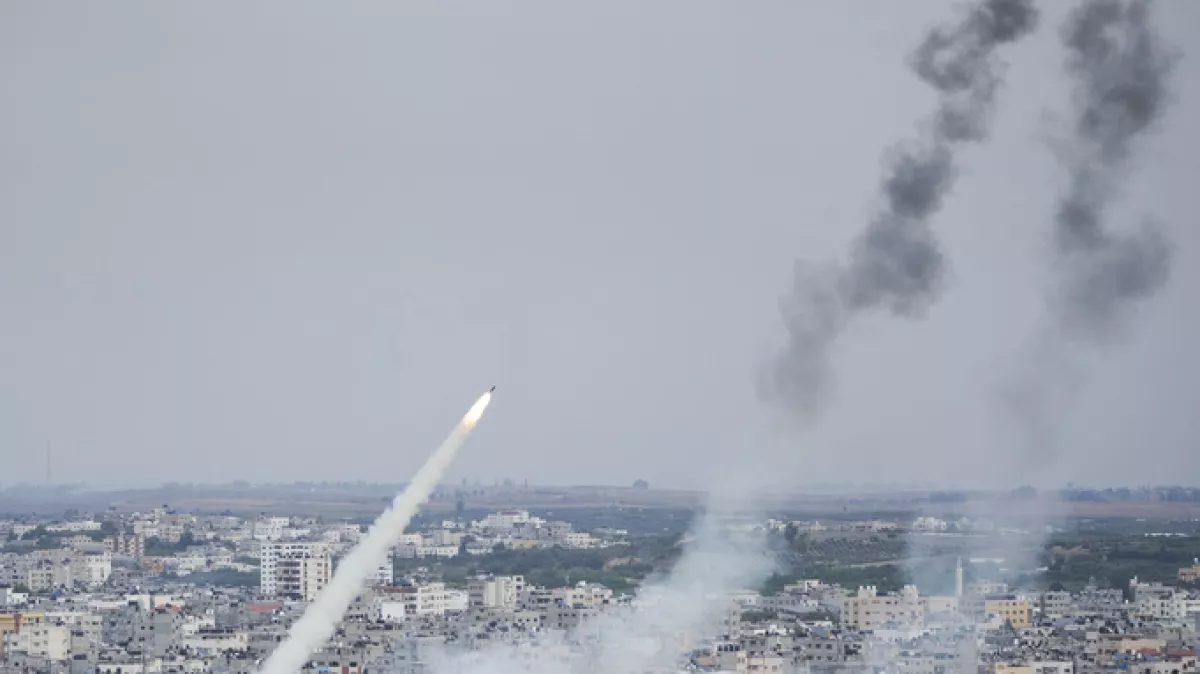Iran-Israel conflict ignites as Middle East teeters on the brink of war Countdown to chaos
In the early hours of October 2, Iran launched a missile barrage targeting Israel, with reports indicating around 200 rockets were fired. This latest escalation has drawn immediate comparisons to Iran’s April 14 attack on Israel, though the tactics this time appear to have shifted.
In the spring, Iran deployed approximately 350 drones, cruise missiles, and ballistic missiles in a coordinated strike. That attack was anticipated, allowing Israel’s air defences, bolstered by Western nations, Jordan, and Saudi Arabia, to mount a defence. However, the recent strike showed a tactical evolution. Iran exclusively used short-range ballistic missiles with a flight time of about 12 minutes, reducing the reaction window for Israeli defences and limiting the involvement of Israel’s allies, according to reports by Israeli news outlet Israel Hayom.
Additionally, Iranian state media touted the use of their new hypersonic Fatah ballistic missiles during this strike, missiles allegedly capable of evading Israeli anti-missile systems. This development marks a significant increase in the sophistication and danger of Iran’s missile arsenal, escalating fears of a wider regional conflict.

Both missile strikes have notably resulted in minimal casualties and damage. Israeli officials reported that the majority of the Iranian missiles were intercepted thanks to a coordinated defence strategy involving three systems. The Arrow system took down the first incoming missiles, while the David system was deployed for medium-range threats, and the Iron Dome batteries handled close-range interceptions. According to Israeli Civil Defense, the recent attack resulted in only one fatality and minor injuries due to falling debris.
Iranian authorities claimed that their strikes specifically targeted Israeli Air Force positions and facilities linked to intelligence operations in Lebanon. However, accurately assessing the extent of the destruction remains challenging. Despite restrictions on publicizing the outcomes of the Iranian strikes, numerous videos have circulated on Israeli social media, showcasing explosions and significant craters left by rocket impacts. Yet, the actual damage inflicted on military installations remains uncertain.
It is evident that the attacks in both instances were politically motivated, aimed at showcasing Iran's determination to take decisive action against Israel. The recent missile strikes stem from a combination of factors that left Tehran with no choice but to engage directly in hostilities. A primary catalyst for this escalation was Israel's successful operations against Hezbollah in Lebanon, which resulted in the near-total annihilation of the movement's military leadership. The Israelis felt emboldened enough to initiate a ground operation in Lebanon at the end of September, despite their previous defeat in the 2006 war. For Iran, a complete defeat of Hezbollah would equate to losing a vital strategic ally that not only controls Lebanon but also operates in Syria and poses a threat to Israel. The missile attacks serve as a way for Lebanese Shiites to gain time and rebuild their command structure to counter the Israeli offensive in the south.
Another critical factor is the breach of undisclosed agreements, as mentioned by Iranian President Massoud Pezeshkian. He indicated that the United States and the European Union had promised Tehran a significant easing of economic sanctions and a ceasefire based on terms put forth by Hamas during behind-the-scenes negotiations. In exchange, Iran was expected to forgo retaliatory strikes against Tel Aviv for the assassination of Hamas leader Ismail Haniyeh during his visit to Iran. However, Israeli Prime Minister Benjamin Netanyahu declined to endorse the ceasefire agreement, sanctions remained in place, and Israel subsequently launched strikes in Lebanon and Yemen. The collapse of these covert agreements severely undermined the liberal faction within the Iranian leadership, empowering hardliners, particularly the Islamic Revolutionary Guard Corps (IRGC), who have long advocated for a bold response against Israel.

Israeli Prime Minister Benjamin Netanyahu's address to the people of Iran, in which he noted that the people of that country “deserve a better regime” and “Iran will finally be free much sooner than many people think,” also added fuel to the fire. As early as last October, analysts at the Jerusalem Institute for Strategic Studies noted that Israel should not stop at defeating Hamas, but should continue its military campaign until the defeat of the “Axis of Resistance,” the system of Iranian allies in the Middle East, and the overthrow of the regime in Tehran. The successful Israeli strikes against Hezbollah and Yemen have clearly made the Iranians think that these plans have begun to materialize.
Most media outlets are now actively discussing a possible Israeli response to an Iranian missile attack, and here much will depend on the position of the United States. The strength of the strikes on Hezbollah and Yemen, and the fact that they were carried out during Benjamin Netanyahu's stay in Washington, suggests that the Israelis and Americans have managed to agree on a tough policy in the Middle East regardless of the outcome of the upcoming US presidential election.
The U.S. State Department has reported that Washington received no prior notification from Tehran regarding the impending missile attack, despite claims to the contrary from Iran's UN representation. National Security Adviser Jake Sullivan emphasized that any strike on Israel would have severe repercussions for Iran, warning that the U.S. response would extend beyond mere economic sanctions. According to The Economist, the U.S. is mobilizing its navy and air force to the Middle East for a potential joint strike with Israel against Tehran.

Israeli Prime Minister Benjamin Netanyahu has responded with a strong warning, declaring, “Iran made a big mistake tonight, and it will pay for it. The Iranian regime does not grasp our determination to defend ourselves and retaliate against our enemies. Sinwar and Deif didn't understand it, Nasrallah and Muhsen didn't understand it, and it seems some in Tehran don't either. They will understand.” In a reciprocal threat, Iranian officials stated that if Israel attacked their nuclear facilities, they would target Israel's nuclear centre in Dimona.
Amos Harel, a columnist for the Israeli newspaper Haaretz, warned that the recent nighttime rocket attacks could lead to a larger regional conflict. In response to the threat of ongoing rocket strikes, airports in both Israel and Iran have suspended operations. Recently, credit rating agencies Moody's and S&P downgraded Israel's credit rating, citing concerns that the country's economy would face challenges due to a prolonged military conflict. As tensions rise, tens of thousands of people are stocking up on fuel and essential supplies while spending nights in bomb shelters. UN Secretary-General António Guterres condemned the escalating violence in the Middle East, stating, “This must stop. We absolutely need a ceasefire.” However, a ceasefire appears increasingly unlikely as the conflict intensifies and more nations become involved.








